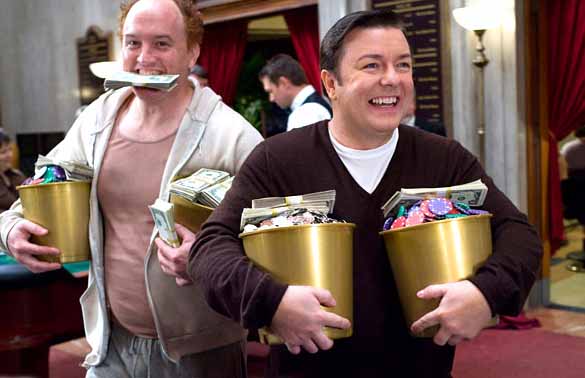 TV
TV In Which You Begin To Grasp His Unique Pain
 Wednesday, August 11, 2010 at 11:00AM
Wednesday, August 11, 2010 at 11:00AM 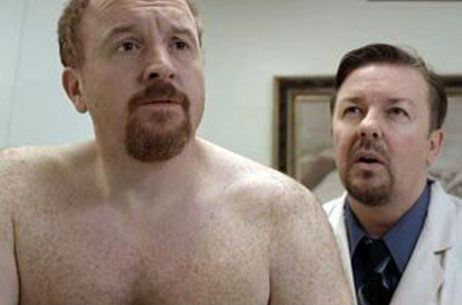
The Great White Male
by ALEX CARNEVALE
creator Louis C.K.
It's hard to be a white man. Pale skin glittering in the sun, your garden variety of white man is twice as susceptible to skin cancer as his peers. If he walks into someone's grotto, he's expected to know what a grotto is and remark, "What a lovely grotto!" He can't enjoy the comedy of Tyler Perry and anytime Will Ferrell cries, he's expected to laugh.
This is the basic premise of Louis CK's new show, Louie. Victimhood never know its name until it met the comedian, whose divorced life as a New York City stand-up is the inspiration for the show. CK's live-studio audience HBO sitcom Lucky Louie was canceled a few years ago despite being the first convincing television show about people below the poverty line since Friends went off the air.
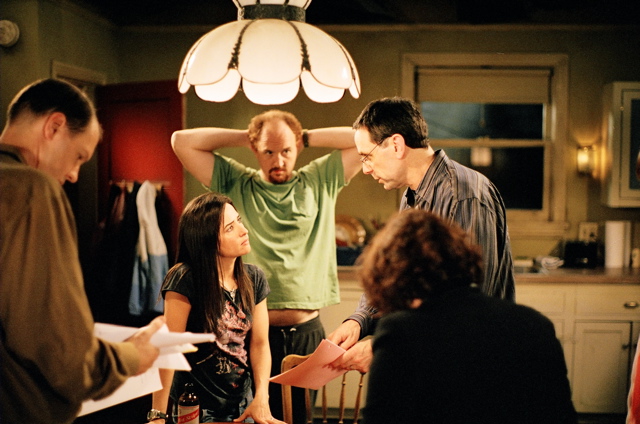
Lucky Louie was half-Roseanne and half a desire to put something on television that hadn't been there in decades or more. Louie and his nurse wife (writer and comedian Pamela Adlon) lived in a two-room apartment with their daughter and had regular problems. CK and Adlon's most famous bit was a ten minute essai on the perils of anal intercourse. What made Lucky Louie such a mindtrip was that something about it was transparently false, just as most of it was frighteningly real:
Lucky Louie was canceled after one season just as it had begun to find a real audience. Ultimately HBO higher-ups felt the working class vibe of nowhere, Massachusetts didn't fit into their Entourage profile, and that's a shame because the show's language was so explicit it could never have survived on any other network.
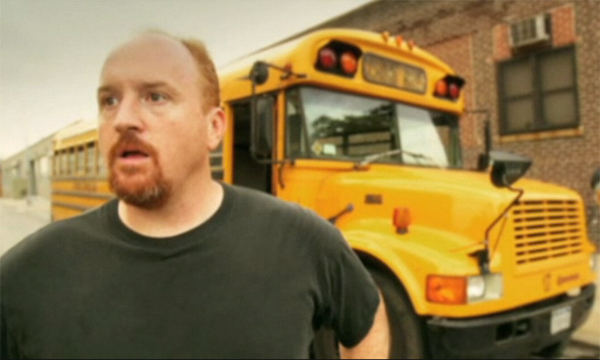
CK turned down other offers to make the Louie pilot for $200,000 because FX gave him full control. As he recalled:
I went [to Hollywood] and I had other networks offering me a lot of money to do a pilot, and I got this call from FX and they said 'Well, we can't offer you a lot of money, but if you do the show for us, you can have a lot of fun.' He was offering me $200,000 as the budget for the whole pilot and I was like 'So what do I get paid?' and he was like 'No, that's the whole thing, $200,000...' I said 'Look, the only way I'm doing this is if you give me the $200,000 - wire it to me in New York - and I'll give you a show. But I'm not pitching it, and I'm not writing a script and sending it to you first.'
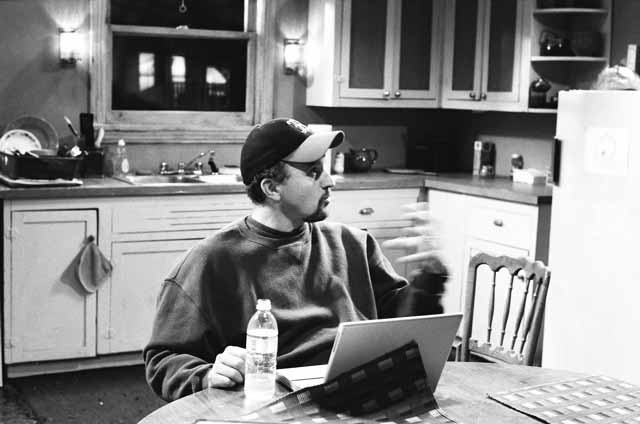
The end product Louie is likely to become the success that Lucky Louie wasn't. Although the comedian's childhood in Massachusetts under less than ideal circumstances was cinéma vérité enough, that isn't the person he's become. CK is more comfortable as an asshole, not because he really is one but because he finds it the only reaction to the world that subjugates and humiliates him whenever it can. If you can understand how a popular comedian with a television series can feel discriminated against, you're about halfway to describing how infectious the political mood in this country is right now.
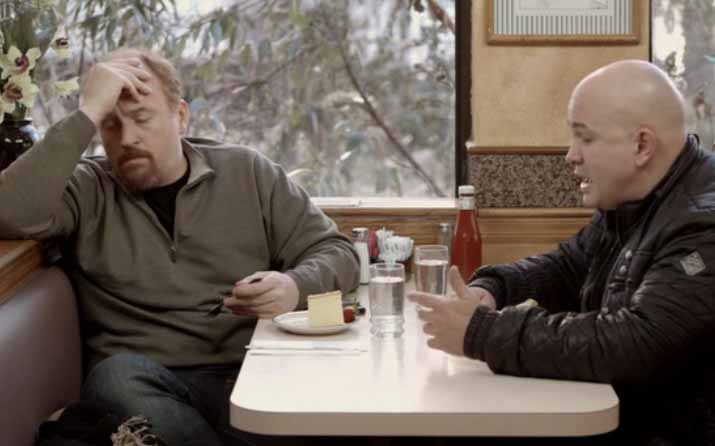
Fame changes people, and CK is no exception. The difference is that he believes he's a nice guy. The show's placid opening tells all — in the show's title sequence, he emerges from the subway like a regular guy, eats a slice of pizza before his show like a normie, and goes to his job. There's a pretension of drudgery that he loves associating with stand-up comedy, and in a recent episode he addresses how humiliating he finds being a comedian. "All these guys, their lives suck," he tells a heckler after his set, indicating a group of white male comedians. "The fifteen minutes they spend on stage are the only time they get to be in charge, and you took that away from them."
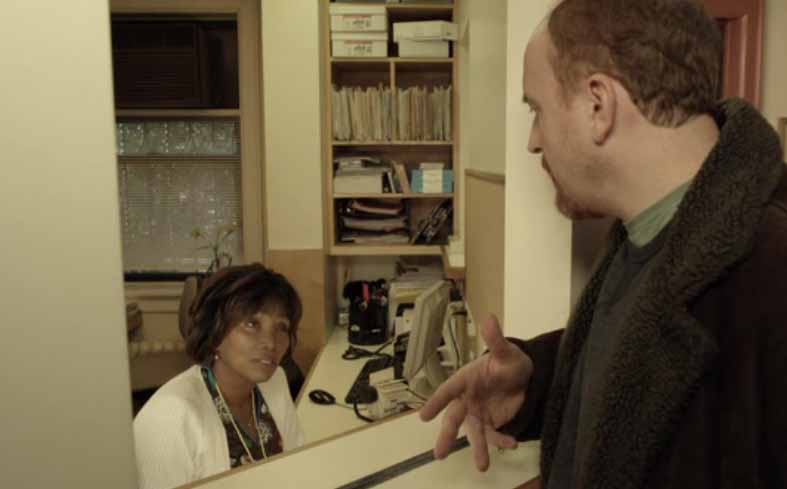
As in Larry David's comedy, minorities are CK's favorite foil. After awhile, you discern that it has nothing to do with them, and everything to do with him. He thinks he's one of them — that he knows what it's like to be black, or hispanic, or a woman. And then he sets out to convince you that there is something in common, until he totally undermines that perspective. One of the show's funniest moments had CK chaperoning a bunch of students and getting stuck on a bus in Harlem. His first act was to tell all the black students to take the window seats. "That's horrible," his co-chaperone tells him. "I know," he says.
Once political correctness held a lot of sway in this country's day-to-day affairs. This is no longer precisely true, but for the white comedian it is the most serious form of opprobrium. And yet, when CK has fellow comedian Nick DiPaolo insult Barack Obama, Louie almost gets in a fistfight defending the honor of the president. This was his way of making sure we knew that he is a liberal. Otherwise, his jokes about homosexuals doing it wrong and black people not tipping enough don't seem as enlightened.
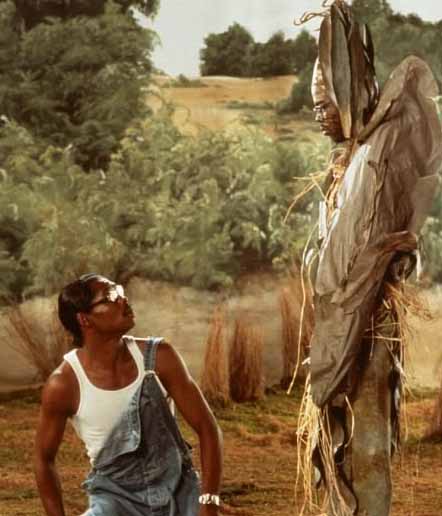
If he could, Louis CK would himself be a minority. He has a long writing relationship with the comedian Chris Rock, and his 2001 directorial debut Pootie Tang was a bizarre satire of blaxploitation films, which always seemed like a strange contrast to the reality of his stand-up. Of the incredibly weird end result, Roger Ebert wrote, "This film is not in releasable condition." In his new show, he turns away from what he believes himself to be, and focuses on what he is: a divorced father of two who only becomes older, fatter, and more repulsive to friends and family by the moment.
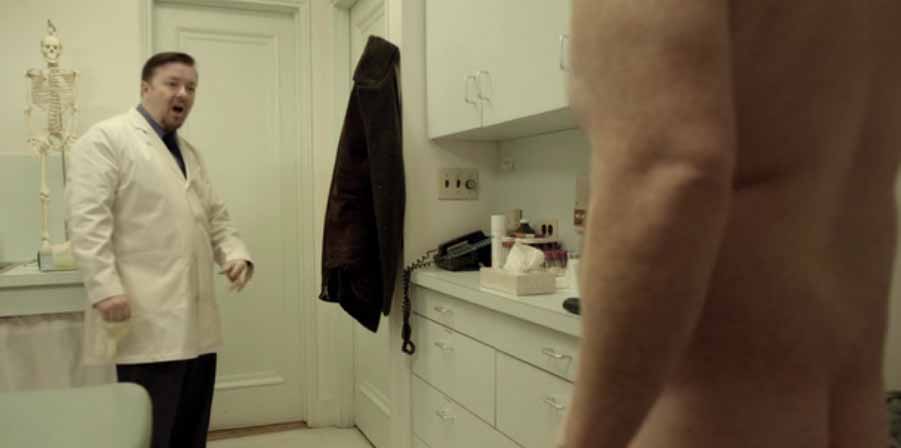
Above all, Louie's main concern is his own physical appearance. Half his comedy revolves around convincing the audience how disgusting he is. One vignette had him approached by an attractive young women who fetishized just how old he was. As she had sex with him, she continually cried out, "You're so old" until the point of orgasm. Until last year, Louie was married to New York artist Alix Bailey. His stand-up has never been very complimentary towards his now ex-wife, who he seemed to regard as an extension of his own self-loathing.
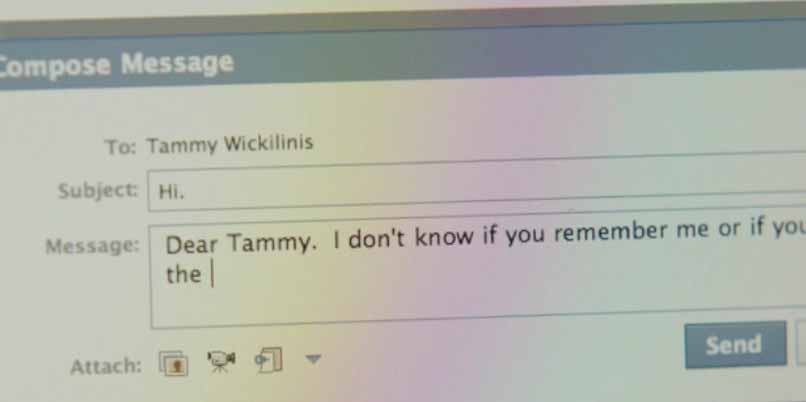
All the authority figures in Louie are older men, who he regards with a mix of suspicion and disgust. Besides his agent, Louie also takes advice from his senior therapist (David Patrick Kelly), who has the advantage of being even more misguided than he is. Like astral projections, these figures seem to taunt Louie into believing that they are an entity he might someday become. The idea that he will be a wrinkled old bigot like all the older men he knows is a strong reminder to himself to stay engaged with the present, lest he become stuck in past time like his crone of a mother.
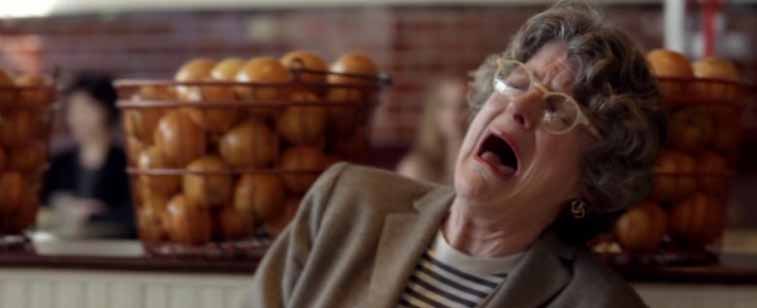
While Louis CK's early comedy was largely observational, that's not the most accurate term when what you're observing is your real life, your existence with a wife and two daughters. Last week's Louie revolved around the hatred of his own mother (the transcendent Mary Louise Wilson). His daughter asks him, "Why do you love her?" and he finds he can't think of an answer. (So far his ex-wife has been politely excluded from the show, a strange move from someone who gets a lot of mileage onstage from executing sacred cows.)
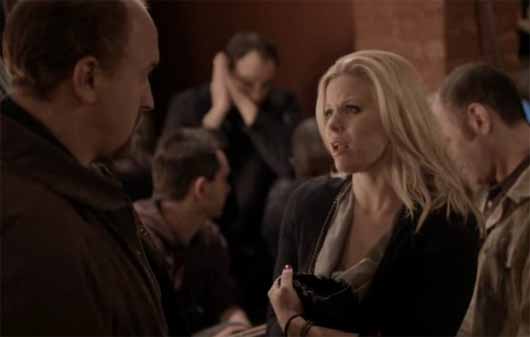
Still, it seems that Louis CK does enjoy something about the one part of his life not entirely consumed with self-analysis: his time with his two kids. When a PTA-acquaintance (Adlon) and her son visit his New York apartment for a playdate, the two parents discuss what the most horrible thing they've ever thought about doing to their kids is. Louie can barely think of anything. In fact, his daughters are the only people on the show he has a nice word for. Everyone else is terribly misguided or judging him so harshly that he puts his gee-shucks look on his face and pouts through the rest of the episode.
The comedian's recent stand-up special Hilarious is the first film of that kind to be accepted at Sundance. Yet Louie feels that if he thinks of himself as successful, he'll lose the sharp edge of his comedy. It's true what he tells his heckler, though. Onstage is where CK has all the power. You can see how comfortable he is there; his shoulders are wide and proud, and he's never apologizing there, only seeking to explain something he can never tell the other people in his life. He is hurt, simply by being who he is.
It was inevitable that white people would start thinking of themselves as victims at some point. In four American commonwealths they are already a minority, and no amount of immigration reform or restriction of birthright citizenship is likely to change that. And so what if they feel persecuted because of the color of their skin? For everything there is a season.
The political movement that has sprung out of this feeling has itself little to do with race — the race of the president or the race of the whites fleeing from his bandwagon. The last president to make white people feel powerful was, of course, Ronald Reagan. Unlike the current talk of hard choices and important sacrifices, Reagan's great insight was that he'd be reelected if he stressed that America would be fine.
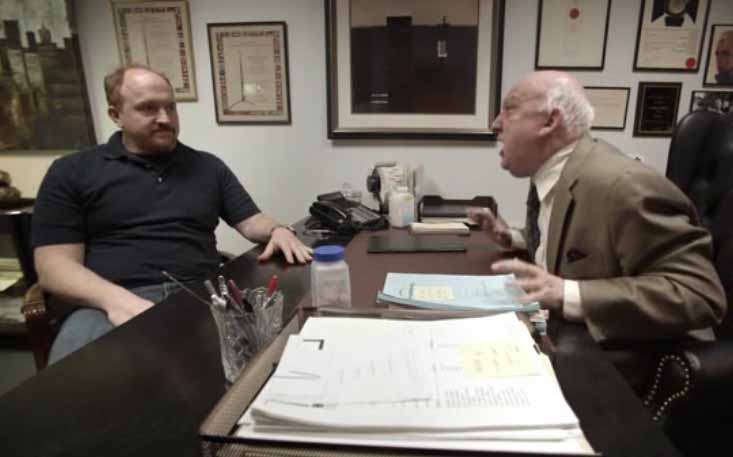
Louis CK doesn't feel it's going to be okay. Half the time he indicates how powerless his surroundings make him feel. Even when he's powerful, the attitude is pervasive. After his ancient Jewish agent tells him he's secured him a part in Matthew Broderick's all-Jew remake of The Godfather, CK politely refuses the part, sending the man into a fatal heart attack. Instead of being amazed by his own power, he shuffles out of the emergency room, the victim of another humiliation. Like the mass of white male voters, he doesn't realize he's the one in control.
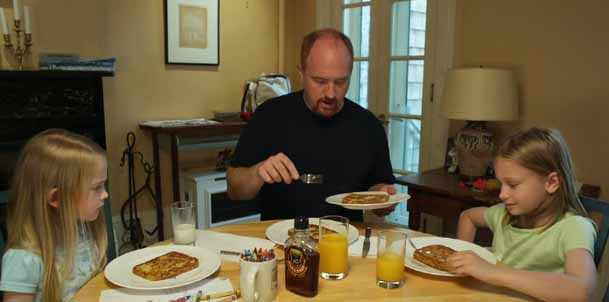
It is almost impossible for one person's comedy to continue to break new ground, but there has never been anything on television like Louie and it's doubtful there ever will be again. At its best moments Louis CK's comedy has no fear at all in depicting people and situations perilously true to reality but never before brought to living rooms. The day-to-day sufferings of wealthy white males are thankfully never without voice. Then again, there's something a little comforting in knowing that he too suffers.
Alex Carnevale is the editor of This Recording. He tumbls here.
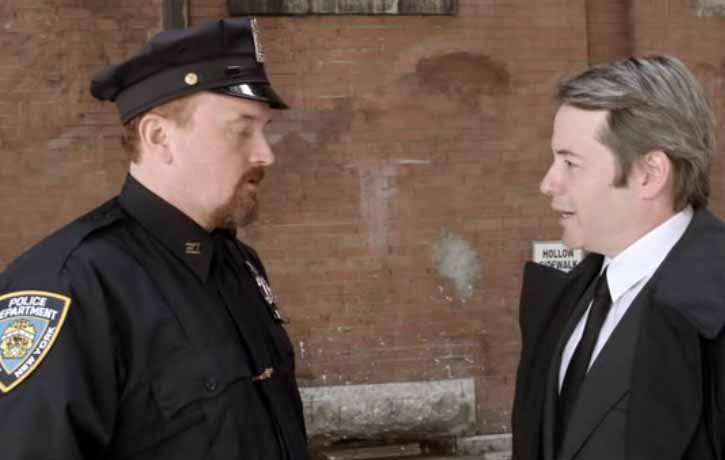
"A Bit of Glue" - The Tellers (mp3)
"Hugo" - The Tellers (mp3)
"Second Category" - The Tellers (mp3)
